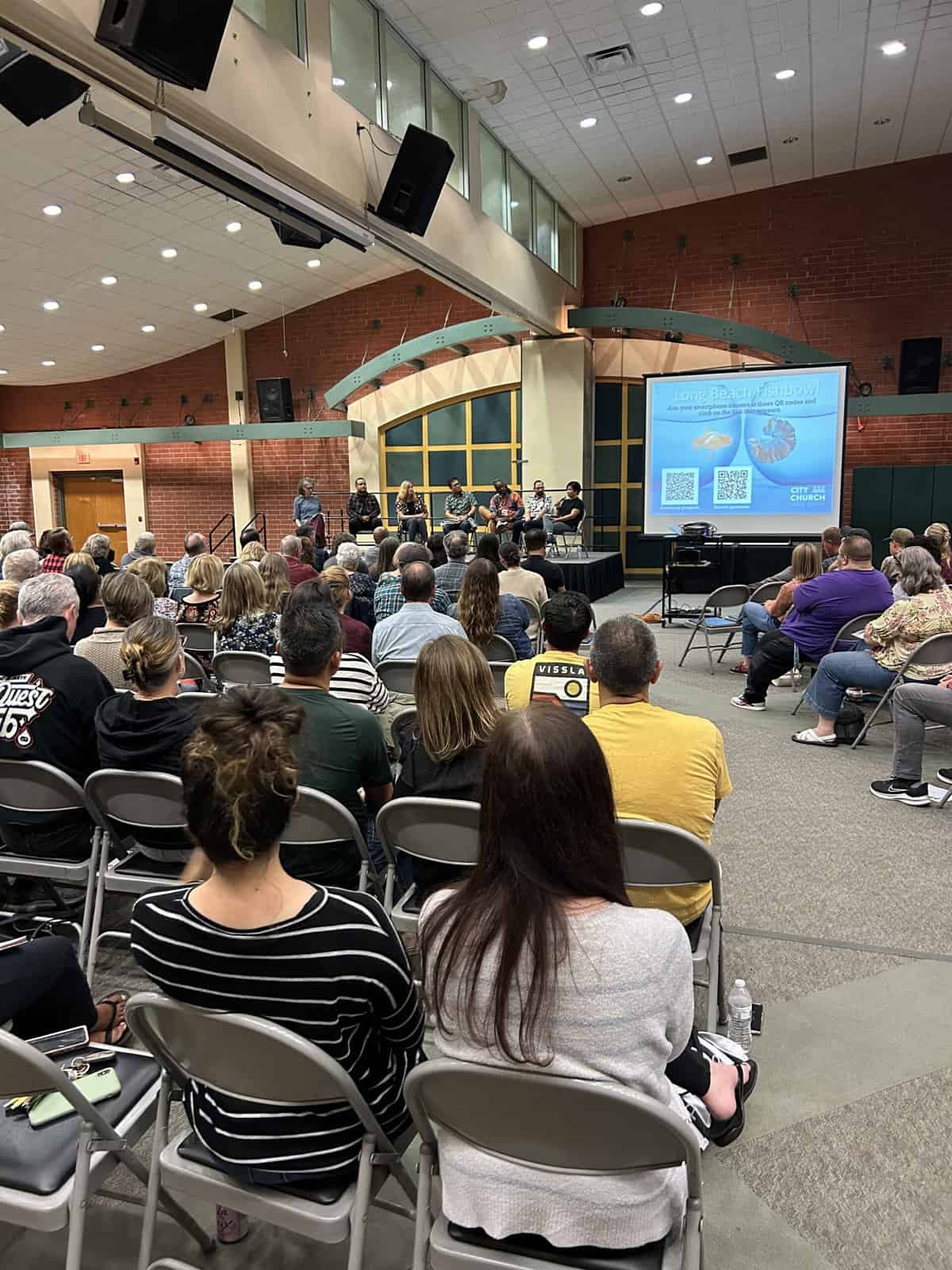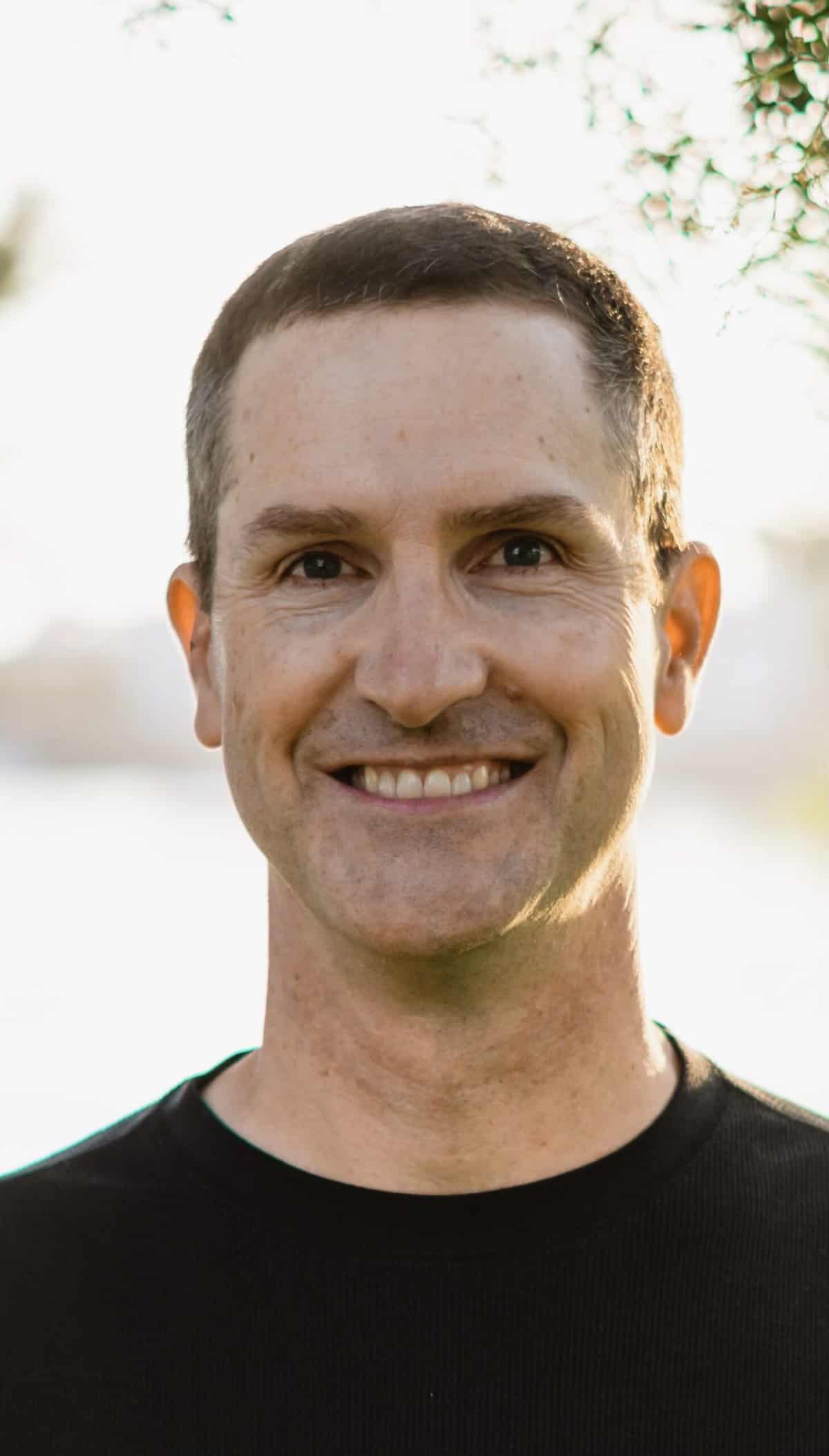 From the back of the gymnasium/fellowship hall, I counted 249 church-goers and leaders, and every one of them was leaning in. No one was on their phone—no, they were too intent on trying to make sense of the unusual scene unfolding in front of them. You see, last month our church (City Church of Long Beach) hosted what’s called a Fishbowl with Oriented To Love, an all-too-rare event where Jesus-followers gather to experience loving dialogue across deep differences. That evening we had an amazing opportunity—learning from LGBTQ+ Christians among us about inclusion in the church.
From the back of the gymnasium/fellowship hall, I counted 249 church-goers and leaders, and every one of them was leaning in. No one was on their phone—no, they were too intent on trying to make sense of the unusual scene unfolding in front of them. You see, last month our church (City Church of Long Beach) hosted what’s called a Fishbowl with Oriented To Love, an all-too-rare event where Jesus-followers gather to experience loving dialogue across deep differences. That evening we had an amazing opportunity—learning from LGBTQ+ Christians among us about inclusion in the church.
The expertly moderated panel intentionally included three theological conservatives and three theological progressives. Five of the panelists were LGBTQ+ themselves, and one was a parent to a gay son. They first shared their own stories vulnerably and asked each other questions. Then they responded to some of the thoughtful and challenging questions submitted by the crowd.
The audience included folks from more than two dozen local churches. One gay friend, who previously had been in the closet for decades while serving in full-time ministry, commented afterwards, “There was a sense that a number of people don’t think there are LGBT people in their congregation. This event was a great place to start for them; I was just surprised to realize that.” In the same conversation, another friend responded, “Some people thought ‘Well this isn’t a problem at our church,‘ and the panel guaranteed them that they had queer people in their congregation, they just didn’t know it.”
Learning from LGBTQ+ Christians
Early on, one LGBTQ+ panelist, Janelle, was asked about how theological tribalism around LGBTQ+ issues affected congregations. I was so moved by the insight she offered: “It’s easy to align with one side and antagonize the other side. We end up thinking, and sometimes saying, ‘My side is right, your side is wrong. I believe that my side, and only my side, knows the truth. My side is better than the other side. My theological beliefs are correct and yours are not.’ But I believe it encourages pride and discourages humility.”
It’s hard not to take that comment seriously when she and the rest of the panel were modeling that humility so courageously! Most likely this is not what most of participants expected—many undoubtedly expected the conversation to devolve into a verbal brawl, as we’ve seen happen so many times in so many spaces. Instead, these queer Christians who see the scripture very differently from each other were actually advocating for each other and for a more welcoming church.
The beautiful words of wisdom continued. Another panelist, Barnabas, shared how, after many years in full time ministry, he is baffled by the need of Christians to battle each other instead of loving one another. He poetically described his own journey this way:
“I feel like I’m a child of two countries who are at war with each other. But as I’ve spent a lot of time in both those countries or cultures, I’ve also seen how they both produce their own real beautiful virtues and struggle with their own real vices. And while they each want Queer people to be on their sides, to shore up their side, I feel like a dual citizen that can’t obey those borders, refusing to give up my allegiance to my parents and friends who live in one country and my family and friends who live in the other.
“While both sides tend to suspect the other and highlight the vices and the weaknesses of the other, the reality is I know people on both who deeply love God, deeply value the scriptures, and are trying to pursue faithfulness. They just come with a different order of priorities and values, and so their logics (theological and scriptural) work in different ways. But their priorities aren’t inherently better or worse, they’re just different.
“While this has been, often, a really lonely and scary place to grow up, in kind of a demilitarized zone, it has also been a space of unanticipated, real wealth, this fugitive space. God can’t be captive to a side. God, like the birds that disobey human-made national borders, moves through and between. Like the wind, the Spirit blows where it pleases.”
Learning from those who love LGBTQ+ people well
Another key insight came from Tom, the (traditionalist) father of a (progressive) gay son. When someone asked how he tries to love his son, with whom he disagrees, he shared this: “It is all too easy to enter these kinds of discussions on a critical search-and-destroy mission to finding and expose the logical flaws in his thinking. I have to trust that the Holy Spirit is as alive and active in him as in me. I have to check my own discomfort at the door. We focus more on how God is using this season in all of our lives to stretch and grow us relationally and spiritually.”
Then, before we’d even had a chance to fully process that breathtaking invitation to self-awareness, Tom created what I personally found to be one of the most poignant moments of the evening, saying: “For me, the most difficult aspect of this journey has been letting go of my dreams for my son’s future… things like [a heterosexual] wedding, recounting birthing stories to a plucky pregnant daughter-in-law, and teaching the grandkids how to set up the Christmas train. At one level this is a ‘real loss’ to mourn. It actually should be part of all parenting. It doesn’t just happen to parents of queer kids. But at another level, it has opened a way for God’s ‘real life’ to replace my fantasies. And ultimately that is healthier for all of us.”
Reflections
In the end, these amazing panelists flipped the fishbowl on us! We came to watch them debate and ended up with them asking our own souls deep, provocative questions instead. We found ourselves needing to have honest conversation within ourselves. Though we didn’t get to all the questions—and honestly there were very few, concrete answers—so much love was on display that we had to ask ourselves: Are we that open to being curious, to being stretched by God? Are we willing to love the people God has already brought to our churches that humbly?
 Bill White is a pastor in Long Beach, CA, with his wife, Katy, who is a doctor leading the medical staff of a clinic on Skid Row up in Los Angeles. They have two kids, one working in political communications in DC and one in college in New Hampshire. Bill worked for 25 years in the evangelical world as missionary, parachurch staff, and pastor. He shifted more post-evangelical around the time his kids identified as gay.
Bill White is a pastor in Long Beach, CA, with his wife, Katy, who is a doctor leading the medical staff of a clinic on Skid Row up in Los Angeles. They have two kids, one working in political communications in DC and one in college in New Hampshire. Bill worked for 25 years in the evangelical world as missionary, parachurch staff, and pastor. He shifted more post-evangelical around the time his kids identified as gay.
The church that Bill helps pastor, City Church of Long Beach, officially launched in 2014. The leadership of City Church formed a Study Team in early 2016 in order to look at issues surrounding participation of LGBTQ persons in the church. The Study Team has been meeting monthly to work through a syllabus of material that covers a range of topics from different Christian perspectives. This essay is adapted from its original home at Small Church, Big Table and is reproduced here with permission.


